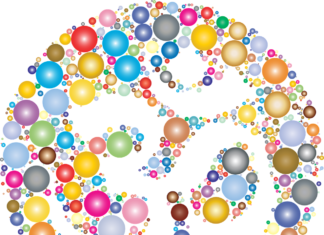The Gut Biome, also known as the gut microbiome, is an intricate and fascinating ecosystem of microorganisms residing within the gastrointestinal tract of humans and various other animals. This vast collection of bacteria, viruses, fungi, and other microorganisms coexists in symbiosis with the human body, influencing various aspects of our health and well-being. The Gut Biome plays a pivotal role in digestion, immune function, nutrient absorption, and even mental health, making it an essential component of the overall human physiology.
The Gut Biome is a dynamic and complex community, composed of trillions of microorganisms that collectively weigh about 2 kg in an average adult. These microorganisms belong to thousands of different species and possess a wide array of functions that are crucial to maintaining a balanced and harmonious relationship with the human body. The most prevalent bacteria found in the Gut Biome include Firmicutes, Bacteroidetes, Actinobacteria, and Proteobacteria, among others. Each of these bacterial groups serves specific purposes, and their proportions can significantly impact gut health.
One of the primary functions of the Gut Biome is aiding in the digestion and absorption of nutrients. Certain bacteria within the Gut Biome possess the capability to break down complex carbohydrates and fibers that the human body cannot digest on its own. By fermenting these substances, these microorganisms produce essential short-chain fatty acids (SCFAs), such as butyrate, acetate, and propionate. SCFAs serve as a significant energy source for the cells lining the gut, supporting their health and function. Moreover, the Gut Biome also assists in the metabolism of bile acids and amino acids, contributing to the overall digestive process.
Furthermore, the Gut Biome plays a critical role in maintaining a robust immune system. The presence of beneficial microorganisms in the gut prevents the colonization of harmful pathogens. These beneficial bacteria compete for nutrients and attachment sites on the gut lining, effectively creating a barrier against potentially harmful invaders. Additionally, the Gut Biome helps regulate the immune response, ensuring that it is appropriately balanced, avoiding excessive inflammation while still effectively fighting off infections.
Beyond its impact on digestion and immune function, the Gut Biome is also intricately connected to mental health and neurological processes. The gut-brain axis is a bidirectional communication system that allows the gut to send signals to the brain and vice versa. This means that the Gut Biome can influence our mood, emotions, and cognitive function. Certain gut bacteria produce neurotransmitters like serotonin and dopamine, which are vital for regulating mood and behavior. Moreover, studies have shown a link between imbalances in the Gut Biome and conditions like anxiety, depression, and even neurodegenerative disorders.
The composition of the Gut Biome is influenced by various factors, with diet being one of the most significant determinants. A diet rich in fiber and diverse plant-based foods tends to promote a more diverse and beneficial gut microbial community. On the other hand, a diet high in processed foods and saturated fats may lead to an imbalance in the Gut Biome, favoring the growth of less beneficial bacteria. Additionally, other lifestyle factors such as stress, sleep patterns, exercise, and the use of antibiotics can also impact the Gut Biome.
Researchers continue to explore the vast complexities of the Gut Biome and its implications for human health. The Human Microbiome Project, launched by the National Institutes of Health (NIH) in 2007, aimed to characterize the microbial communities living in and on the human body. Through this and other ongoing research, scientists have made significant strides in understanding the importance of the Gut Biome in various aspects of human health.
One promising area of research is the development of personalized medicine based on an individual’s Gut Biome profile. By understanding the unique composition of a person’s Gut Biome, healthcare professionals may be able to tailor treatments and interventions to optimize gut health and improve overall well-being. This may include personalized dietary recommendations, prebiotic and probiotic therapies, and even fecal microbiota transplants (FMT) to restore a healthy Gut Biome in individuals with severe dysbiosis.
Furthermore, the potential of the Gut Biome extends beyond human health. Researchers have also been investigating its role in agriculture, environmental sustainability, and even forensic science. In agriculture, the Gut Biome of livestock can influence their growth and overall health, while in environmental science, it plays a crucial role in the decomposition of organic matter and nutrient cycling.
The Gut Biome is a fascinating and integral aspect of human biology, consisting of a diverse community of microorganisms that impact digestion, immunity, and mental health. Its complex interactions with the human body make it an exciting and promising area of research, with potential applications in personalized medicine and beyond. As we continue to unveil the mysteries of the Gut Biome, it is clear that nurturing and maintaining its balance is essential for promoting overall health and well-being. Embracing a lifestyle that supports a diverse and healthy Gut Biome through a balanced diet, stress management, and other beneficial practices can undoubtedly contribute to better health outcomes and a higher quality of life.
Additionally, ongoing research into the Gut Biome has shed light on the critical role it plays in metabolic disorders and obesity. Studies have shown that individuals with obesity tend to have a different composition of gut bacteria compared to lean individuals. This suggests that the Gut Biome may influence how the body extracts energy from food and stores fat. Understanding the mechanisms behind these associations could open up new avenues for tackling the obesity epidemic through targeted interventions to modify the Gut Biome.
Another fascinating aspect of the Gut Biome is its potential impact on the development and function of the immune system, especially in early life. The Gut Biome of infants begins to establish shortly after birth and is significantly influenced by factors such as delivery mode (vaginal birth or cesarean section), feeding practices (breastfeeding or formula feeding), and early environmental exposures. This early gut colonization is essential for training the immune system and helping it distinguish between harmless substances and potential threats. Disruptions in this process have been linked to an increased risk of autoimmune diseases and allergies later in life.
Furthermore, the Gut Biome’s role in drug metabolism is an area of growing interest and importance. Certain gut bacteria can metabolize drugs, affecting their efficacy and potential side effects. Pharmacomicrobiomics, a field that explores the interactions between drugs and the Gut Biome, aims to optimize drug therapies based on an individual’s gut microbial profile. By understanding how the Gut Biome affects drug responses, researchers hope to develop personalized medicine approaches that can enhance treatment outcomes and reduce adverse reactions.
The Gut Biome’s influence is not limited to the gastrointestinal tract alone. It extends its effects to distant organs and tissues through a complex network of signaling molecules and immune mediators. For instance, imbalances in the Gut Biome have been linked to chronic inflammatory conditions such as inflammatory bowel disease (IBD), rheumatoid arthritis, and even cardiovascular disease. The chronic low-grade inflammation resulting from Gut Biome dysbiosis may contribute to the development and progression of these conditions.
Emerging evidence also points to a potential link between the Gut Biome and certain types of cancer. Researchers are investigating the role of gut bacteria in metabolizing dietary components, which could produce metabolites with carcinogenic properties or, alternatively, beneficial metabolites with potential anti-cancer effects. Understanding these interactions could open up new avenues for cancer prevention and treatment strategies through dietary modifications and targeted interventions to modulate the Gut Biome.
In recent years, there has been a surge in interest in interventions aimed at manipulating the Gut Biome to improve health outcomes. Probiotics, which are live microorganisms with potential health benefits, have gained popularity as a means to positively influence the Gut Biome. These beneficial bacteria can be found in certain fermented foods and supplements. Prebiotics, on the other hand, are non-digestible food components that promote the growth and activity of beneficial gut bacteria. Both probiotics and prebiotics can be incorporated into the diet to support a healthy Gut Biome.
Another emerging and somewhat controversial area of research is fecal microbiota transplantation (FMT). FMT involves the transfer of fecal matter from a healthy donor to an individual with a disrupted Gut Biome, often to treat recurrent Clostridium difficile infections. While FMT has shown remarkable success in treating certain conditions, its safety and long-term effects are still being studied. Researchers are also exploring the possibility of using synthetic or cultured gut microbes as a safer and more controlled alternative to FMT.
As the Gut Biome research progresses, ethical considerations have arisen, especially concerning privacy, informed consent, and commercialization. The data generated from Gut Biome profiling is highly personal, and concerns have been raised about how it could be used and potentially misused by third parties, including insurance companies and employers. Striking a balance between advancing scientific knowledge and protecting individual rights and autonomy remains an ongoing challenge.
In conclusion, the Gut Biome is a captivating and multifaceted ecosystem with a profound impact on human health and beyond. Its intricate interactions with the human body influence digestion, immunity, mental health, drug metabolism, and even the risk of various diseases, making it a crucial area of research and exploration. As we continue to unravel the complexities of the Gut Biome, we gain valuable insights into personalized medicine, preventive healthcare, and potential interventions to improve overall well-being. However, there is still much to learn, and researchers must remain vigilant in addressing ethical considerations and advancing our understanding responsibly. The Gut Biome’s potential to revolutionize medicine and transform our approach to health and disease is vast, making it an exciting frontier in the field of science and medicine.






















